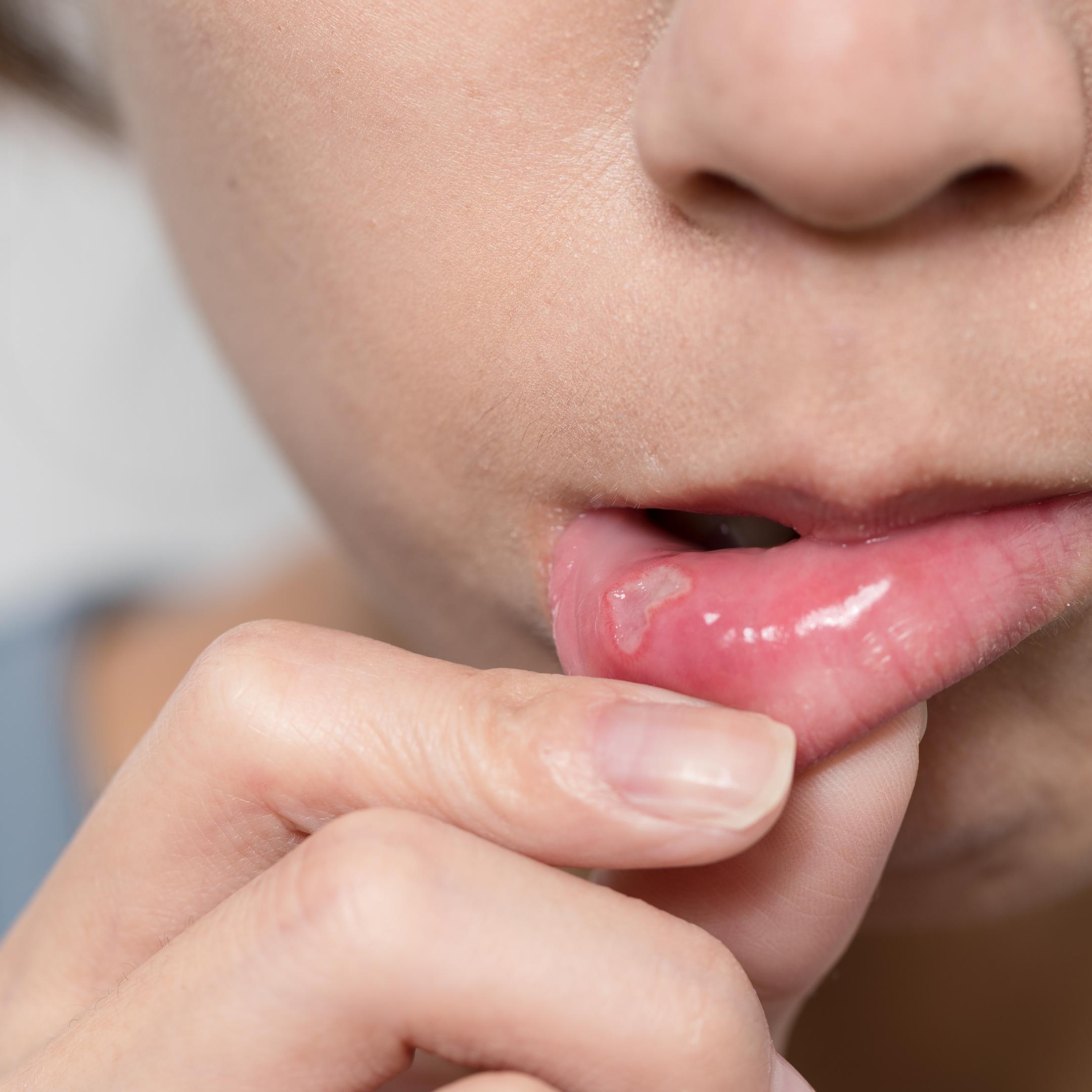Aphthae
What are they?
The term “aphthae” has been used to designate small superficial lesions in the mouth that produce a painful sensation similar to a burn. These lesions, also known as aphthous ulcers, constitute one of the most frequent oral diseases, along with caries.
Most canker sores are round or oval and they are usually small (about 5 millimeters), whitish in color and surrounded by a red area. They usually persist for a few days and usually heal spontaneously in one to two weeks.
Types of Aphtae
1. Minor canker sores are the most frequent and are usually small. They are oval in shape and have a red border. They heal without scarring in one to two weeks.
2. Major canker sores are less common and are larger and deeper than minor canker sores. They are often round and have sharp edges, although these can be jagged when the canker sores are too large. It can be extremely painful and can take up to six weeks to heal and leave significant scars.
Who do they affect?
They are common in the general population (mostly women); in fact, it is estimated that more than half of the population has suffered an outbreak of aphtha at some point in their lives, and it is estimated that 20% of people have aphtae often. Oral ulcers are more common in children and young people and become less frequent with advancing age.
Usually appears in lips, in the back of the throat, or under the tongue. They are not contagious and can present as one sore or several.

What are the Causes?
While the precise cause of canker sores remains unclear, some researchers suspect that outbreaks are caused by a combination of factors.
Some possible triggers for canker sores include:
• A minor injury to the mouth from dental work, excessive tooth brushing, sports accidents, or accidentally biting your cheek
• Toothpastes and mouthwashes that contain sodium lauryl sulfate.
• Sensitivity to some foods, especially chocolate, coffee, strawberries, eggs, nuts, cheese, and spicy or acidic foods.
• A diet lacking in vitamin B-12, zinc, folate (folic acid), or iron
• An allergic response to certain bacteria in the mouth
• Helicobacter pylori, the same bacterium that causes peptic ulcers
• Hormonal changes during menstruation
• Emotional stress.
Canker sores can also appear due to certain disorders and diseases, such as the following:
• Celiac disease, a serious intestinal disorder caused by sensitivity to gluten, a protein found in most grains
• Inflammatory bowel diseases, such as Crohn’s disease and ulcerative colitis
• Behçet’s disease, a rare disorder that causes inflammation throughout the body, including in the mouth
• A faulty immune system that attacks healthy cells in the mouth instead of pathogens, such as viruses and bacteria.
• HIV/AIDS, which suppresses the immune system
Unlike cold sores, canker sores are not associated with herpes virus infections.
When to visit your dentist?
Over-the-counter topical anesthetics and antimicrobial mouthwashes may provide temporary relief. Stay away from hot, spicy, or acidic foods that can irritate the sore.
Visit a specialist if you present the following:
• Unusually large aphta
• Recurrent canker sores, which appear after the previous ones have healed, or frequent outbreaks.
• Persistent thrush, which lasts for two weeks or more
• Canker sores extending to the lips (with a red border)
• Pain that you cannot control with self-care measures.
• Extreme difficulty eating or drinking
• High fever along with canker sores
See your dentist if you have sharp tooth surfaces or dental appliances that seem to cause canker sores.
Treatments that you could be interested




